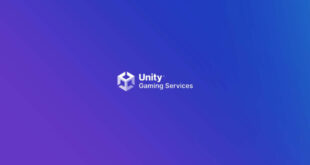After a wait that has kept developers large and small on tenterhooks for months, Unity 3.5 is ready for release. What does it mean for games developers? CEO David Helgason reveals all.
Where does the 3.5 update take the engine? It seems to be quite a reinvention.
Just over a year ago we took a very strong decision. We saw that, while lots of small teams are using Unity, a greater number of much bigger teams were starting to use Unity, and they were doing more ambitious things with the engine.
Those bigger teams needed things that we hadn’t focused on before. So we decided to focus on triple-A games with Unity 3.5 – which of course means high-end technologies – but also means a focus on large team workflows.
We knew at that time that we fell short in both those areas, so we started to hire engineers with triple-A backgrounds who have worked with triple-A engines at big studios; people like the Dice guys who’d worked on Frostbite and the IO guys who had worked on Glacier. We found that those guys were the best we could get.
So opening Unity to triple-A has taken a significant investment of effort?
Yes. That was the time when internally in the company we laid out what we’ve called ‘the triple-A initiative’. We haven’t defined triple-A as a binary thing where you either are or are not that kind of studio. We knew that within a year we wanted to close the gap between Unity and other engines; be they in-house engines at studios or the kind that are focused solely on that very high quality. So that’s what we did, and it’s gone really very well.
Does the move towards triple-A also mean that you’re also now offering that level of quality to the smaller teams that were Unity’s traditional audience?
Absolutely. The one thing that was important to us was this: just because it is better doesn’t mean we want to charge more for it. If we did that it would betray the whole idea of Unity.
We didn’t really want to change our business model either. It should still be about more technology for the same price, for the same people in a way.
We also didn’t want to over complicate things, so we wouldn’t allow ourselves to go overboard with something that was too specialised. We didn’t want it to become too complex or unwieldy. We could do it, but it has to keep the same level of simplicity.
So you had to move slowly to balance triple-A performance and your mantra of ‘democratising games development’?
That was actually part of the reason we delayed the release. Some of the new triple-A features could be created in isolation in a week, but would take an insane amount of work and a lot of time to make sure they were properly integrated with the rest of the system so that it didn’t get too complex. We had to be careful to add the new triple-A features without making it something that Unity isn’t.
Take the new pathfinding abilities. They were easy – or at least relatively easy – to build quickly, but then it turns out that making the pathfinding work with things like Unity’s additive loading took a lot of work.
But the results are incredible, and it’s been worth the time.
It’s basically a triple-A engine with the simplicity we had before, which is awesome.
There’s been a lot of coverage everywhere of Unity’s move to support Flash deployment, but what about the new support of Google Chrome Native Client deployment? Why is that significant?
Mainly it is because Chrome is getting insane levels of adoption right now; the last number I saw was over 30 per cent.
The main thing about the Chrome browser is that it automatically updates itself, so if you’re supporting Chrome you are supporting just one browser that is this beautiful thing. Google added the technology called Native Client, which we’ve all been waiting for for years.
I think we showed our first demo of Unity running in Native Client almost three years ago. Now it is available you can build a web game with Unity that runs in there at close to native speed with pretty good graphics. It’s somewhat feature limited, so it’s not the full thing, but it’s pretty close.
And again it’s completely frictionless for anyone that knows Chrome.
With our own plug-in and the Flash export and the Chrome export we’ve pretty much cornered almost the entire browser market. There’s almost nowhere where Unity won’t run, and nowhere where it won’t run pretty well.

 MCV/DEVELOP News, events, research and jobs from the games industry
MCV/DEVELOP News, events, research and jobs from the games industry



